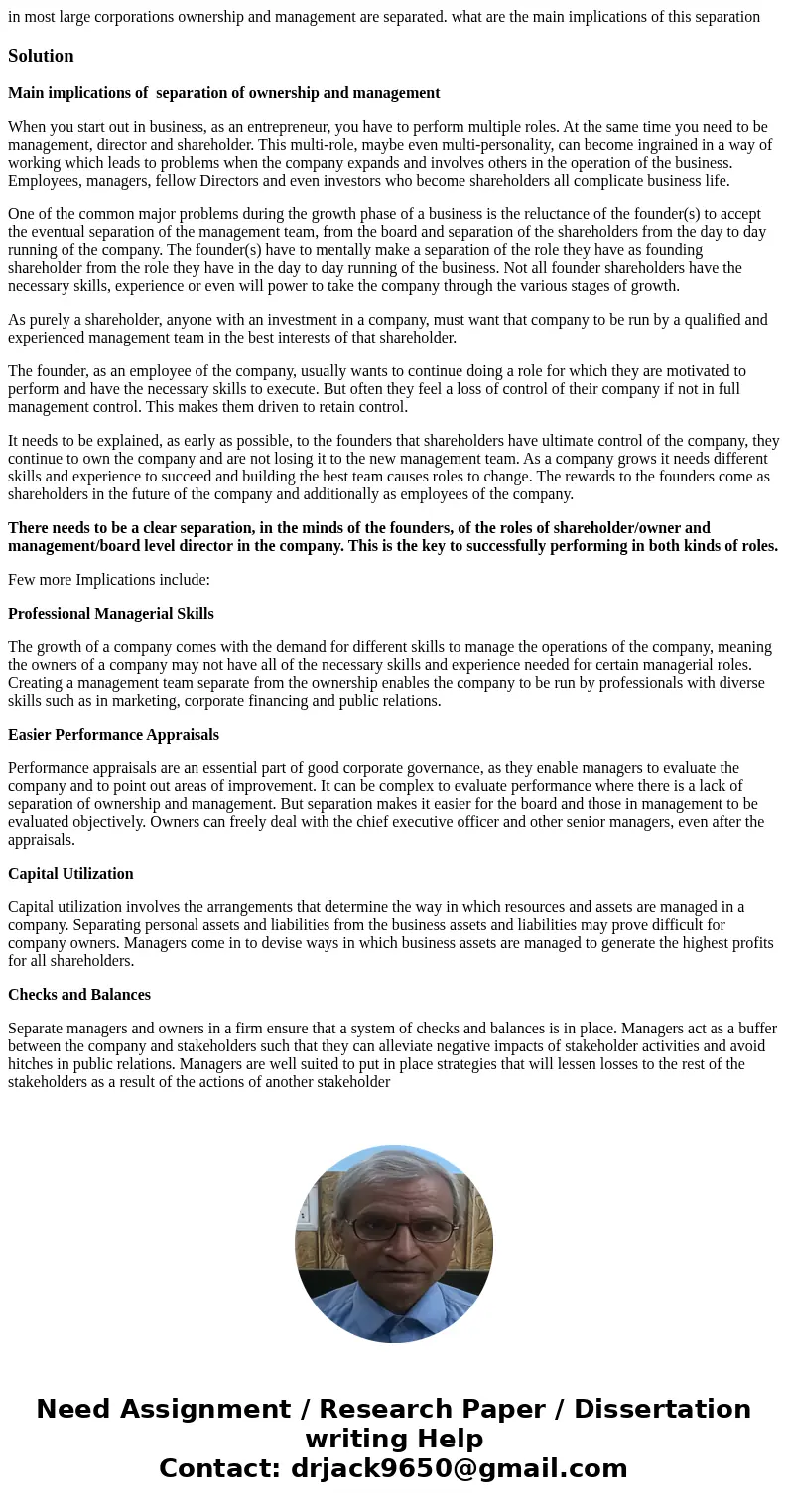in most large corporations ownership and management are sepa
in most large corporations ownership and management are separated. what are the main implications of this separation
Solution
Main implications of separation of ownership and management
When you start out in business, as an entrepreneur, you have to perform multiple roles. At the same time you need to be management, director and shareholder. This multi-role, maybe even multi-personality, can become ingrained in a way of working which leads to problems when the company expands and involves others in the operation of the business. Employees, managers, fellow Directors and even investors who become shareholders all complicate business life.
One of the common major problems during the growth phase of a business is the reluctance of the founder(s) to accept the eventual separation of the management team, from the board and separation of the shareholders from the day to day running of the company. The founder(s) have to mentally make a separation of the role they have as founding shareholder from the role they have in the day to day running of the business. Not all founder shareholders have the necessary skills, experience or even will power to take the company through the various stages of growth.
As purely a shareholder, anyone with an investment in a company, must want that company to be run by a qualified and experienced management team in the best interests of that shareholder.
The founder, as an employee of the company, usually wants to continue doing a role for which they are motivated to perform and have the necessary skills to execute. But often they feel a loss of control of their company if not in full management control. This makes them driven to retain control.
It needs to be explained, as early as possible, to the founders that shareholders have ultimate control of the company, they continue to own the company and are not losing it to the new management team. As a company grows it needs different skills and experience to succeed and building the best team causes roles to change. The rewards to the founders come as shareholders in the future of the company and additionally as employees of the company.
There needs to be a clear separation, in the minds of the founders, of the roles of shareholder/owner and management/board level director in the company. This is the key to successfully performing in both kinds of roles.
Few more Implications include:
Professional Managerial Skills
The growth of a company comes with the demand for different skills to manage the operations of the company, meaning the owners of a company may not have all of the necessary skills and experience needed for certain managerial roles. Creating a management team separate from the ownership enables the company to be run by professionals with diverse skills such as in marketing, corporate financing and public relations.
Easier Performance Appraisals
Performance appraisals are an essential part of good corporate governance, as they enable managers to evaluate the company and to point out areas of improvement. It can be complex to evaluate performance where there is a lack of separation of ownership and management. But separation makes it easier for the board and those in management to be evaluated objectively. Owners can freely deal with the chief executive officer and other senior managers, even after the appraisals.
Capital Utilization
Capital utilization involves the arrangements that determine the way in which resources and assets are managed in a company. Separating personal assets and liabilities from the business assets and liabilities may prove difficult for company owners. Managers come in to devise ways in which business assets are managed to generate the highest profits for all shareholders.
Checks and Balances
Separate managers and owners in a firm ensure that a system of checks and balances is in place. Managers act as a buffer between the company and stakeholders such that they can alleviate negative impacts of stakeholder activities and avoid hitches in public relations. Managers are well suited to put in place strategies that will lessen losses to the rest of the stakeholders as a result of the actions of another stakeholder

 Homework Sourse
Homework Sourse